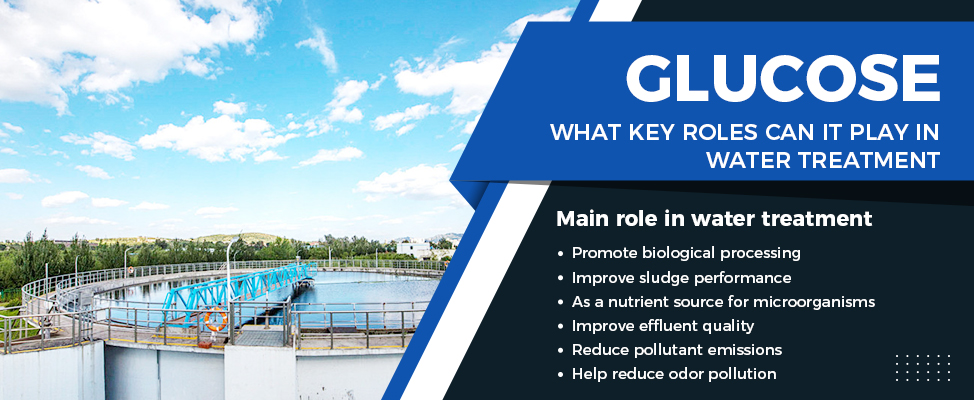
In modern wastewater and industrial water treatment, glucose has become an increasingly popular eco-friendly carbon source. With its stable supply, high biodegradability, and ability to provide essential nutrients and energy to microorganisms, glucose plays a vital role in multiple treatment processes.
Enhancing Denitrification for Nitrogen Removal
Glucose serves as a readily available carbon source for denitrifying bacteria, accelerating the reduction of nitrate and nitrite. This significantly improves nitrogen removal efficiency, reducing the risk of eutrophication in water bodies.
Improving Biological Phosphorus Removal
By supplying energy to polyphosphate-accumulating organisms (PAOs), glucose helps optimize the anaerobic–aerobic metabolism cycle, thereby enhancing phosphorus removal efficiency. This is particularly valuable in municipal and food industry wastewater treatment.
Supporting Microbial Activity and System Stability
In low C/N ratio wastewater, a lack of carbon source can weaken microbial activity. Glucose, as a rapidly biodegradable organic compound, is easily utilized by microorganisms, boosting system stability and treatment efficiency.
Safe, Eco-Friendly, and Easy to Use
Compared with traditional carbon sources such as methanol or sodium acetate, glucose is non-toxic, safe to store, and easy to handle. It is especially suitable for sensitive industries such as food, beverage, and pharmaceuticals.
Municipal Wastewater Treatment
Nitrogen and phosphorus are the main pollutants in municipal wastewater. Glucose can be quickly absorbed by denitrifying bacteria, reducing total nitrogen and ammonia concentrations while improving biological phosphorus removal performance.
Food & Beverage Industry Wastewater
Food and beverage wastewater usually contains high concentrations of organic matter. As a safe and non-toxic carbon source, glucose improves biological treatment efficiency without introducing secondary pollution.
Pharmaceutical & Chemical Wastewater
In pharmaceutical and chemical wastewater, low biodegradability and poor C/N balance often weaken microbial activity. Glucose supplementation improves biodegradability and enhances overall treatment stability.
Combination with Other Chemicals
Glucose is often used together with PAC (Polyaluminum Chloride) and PAM (Polyacrylamide). While PAC and PAM handle coagulation and flocculation, glucose provides microorganisms with a carbon source, resulting in more efficient water purification.
Q1: Why use glucose as a carbon source in water treatment?
A: Glucose is stable, biodegradable, non-toxic, and safer to use compared with methanol or sodium acetate.
Q2: How effective is glucose for nitrogen and phosphorus removal?
A: Glucose is easily degradable and accelerates denitrification and phosphorus removal processes, improving overall treatment efficiency.
Q3: How is the dosage of glucose determined in wastewater treatment?
A: The dosage depends on wastewater characteristics, C/N ratio, and process requirements. Laboratory or pilot tests are recommended to determine the optimal amount.
Q4: Will glucose cause secondary pollution?
A: No. Glucose is completely biodegradable and does not produce harmful by-products.
Q5: Which industries can benefit from glucose in water treatment?
A: It is widely applied in municipal wastewater, food and beverage, pharmaceutical, chemical, and aquaculture industries.
Glucose plays an irreplaceable role in water treatment by enhancing nitrogen and phosphorus removal, improving microbial activity, and ensuring long-term system stability. As a safe, sustainable, and eco-friendly carbon source, glucose is becoming the preferred solution across multiple industries.
With 28 years of manufacturing expertise, we supply glucose, PAC, PAM, and a full range of water treatment chemicals to help clients achieve optimal solutions. Contact us today for tailored water treatment support.

Please contact us for free quotation by form below. We promise the quickest response within 24 hours: